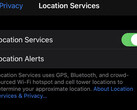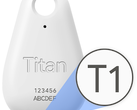Even the most secure walled gardens have holes.
Researchers at Wandera, a cybersecurity research firm, found trojans in 17 apps on the Apple App Store. The malware-infected apps circumvented Apple’s stringent approval process. The apps (listed below) have been removed from the App Store.
The malware discovered in the affected apps isn’t directly harmful to users and should pose a personal security risk to anyone. Instead, the malware is a “clicker trojan module” that can be used to commit ad fraud.
In short, a clicker trojan is a piece of malware that opens web pages in the background and clicks links without the user’s input or knowledge. This is done to generate revenue by fraudulently upping the “pay-per-click” count of web pages. It is common for website to earn advertising revenue based on the number of clicks a page generates; a clicker trojan automates that process and fraudulently increases the number of views on a web page.
While the infected apps didn’t harvest personal data from users, they likely increased mobile data use and drained battery life because of the web traffic created in the background.
So how did infected apps pass through Apple’s strict review process? After all, the Apple App Store is known for having an incredibly secure review process to suss out any malicious apps. The apps in question did not have malware embedded directly in their code. Rather, the apps would reach out to a remote server which would then execute the fraudulent web activity.
Apple stated it will improveWa its app review process to prevent future malware like this.
The 17 infected apps are all from the same developer: AppAspect Technologies Pvt. Ltd. If you have any of these installed on your Apple device, it’s recommended to remove them immediately:
- RTO Vehicle Information
- EMI Calculator & Loan Planner
- File Manager – Documents
- Smart GPS Speedometer
- CrickOne – Live Cricket Scores
- Daily Fitness – Yoga Poses
- FM Radio – Internet Radio
- My Train Info – IRCTC & PNR
- Around Me Place Finder
- Easy Contacts Backup Manager
- Ramadan Times 2019
- Restaurant Finder – Find Food
- BMI Calculator – BMR Calc
- Dual Accounts
- Video Editor – Mute Video
- Islamic World – Qibla
- Smart Video Compressor































